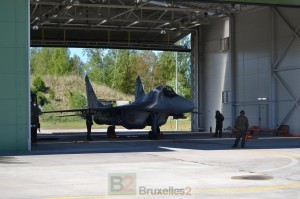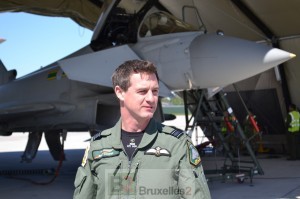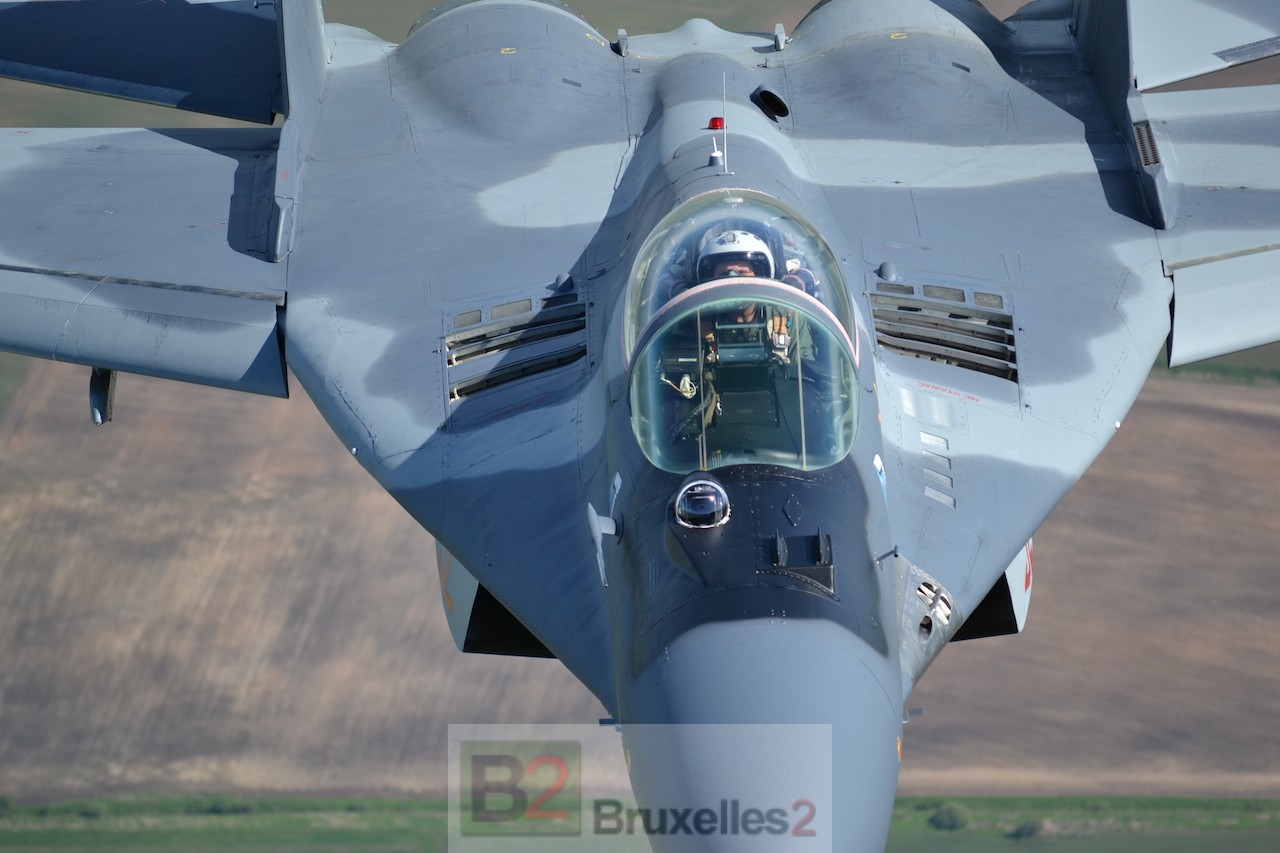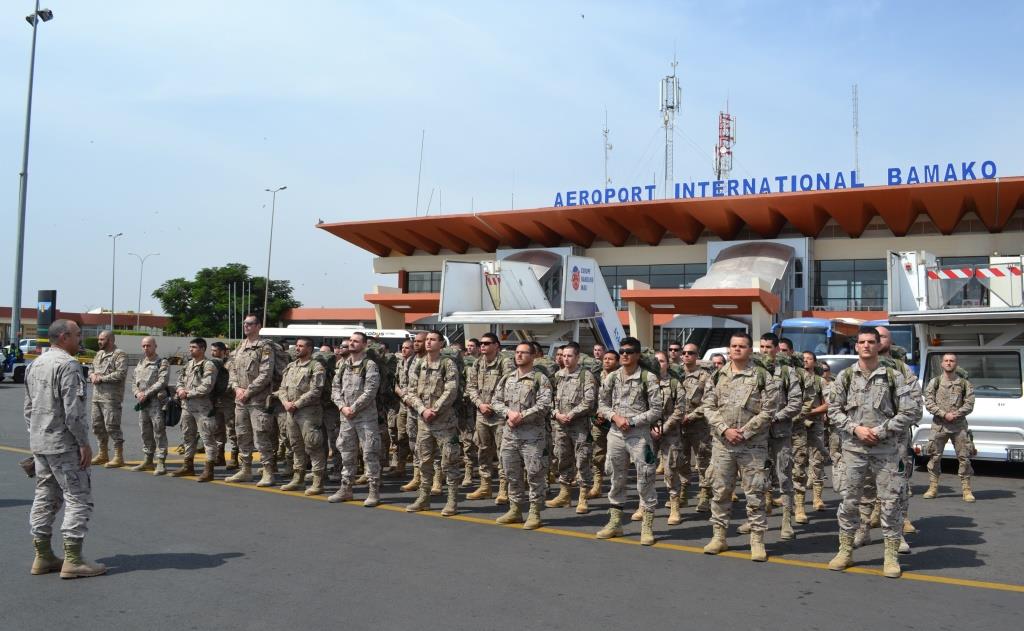Baltic Scramble
(B2 to Šiaulai) The weather is nice on the Baltic that day. And the four planes — British and Polish — are on a training mission

The routine, for the pilots of the 4 planes which are in the air, 2 British Typhoon FGR4 and 2 Polish MIG-29... We observe them from a distance in the C27J plane of the Lithuanian army. Suddenly, it's the alert. The two Typhoons change course, turn wings. They leave the field of view. " Something is wrong » says an English pilot who is an expert in this type of situation. An unidentified device has, in fact, been spotted brushing the border of one of the Baltic countries on which the surveillance of NATO devices is exercised.
Alpha scramble for the Royal Air Force!
The alert is very real (an "Alpha Scramble" as airmen like to call it). It is a Russian aircraft, a K-27 HELIX military helicopter flying over international waters, very close to the Latvian border. Several elements make it suspicious in the eyes of the NATO air traffic controllers of the CAOC (Combined Air Operation center) of Uedem, in Germany, which controls the whole system. His " transponder was off » and he had « no defined flight plan explains an officer. He did not respond to the first signals from the sky controllers. In other words, he was suspicious. A Danish patrol chased her with the British patrol. Information taken: the helicopter does come from the Stereoguschiy (530), a Baltic Sea Fleet corvette. Localization carried out, the planes return to their base. The Danes in Amari (Estonia), the British in Siaulai.
The home base: Šiaulai
Located nearly 300 km from the Lithuanian capital Vilnuis, the Šiaulai military base is today the nerve center of the reinforced air surveillance set up by NATO. as part of the Baltic Air Policy (Read : Above the Baltic countries, NATO planes keep watch). In the past (when Lithuania was part of the USSR), it was already " strategic ". Because Russian bombers could thus reach Germany and northern Europe. The stigmata of the Soviet period are also visible with dated installations like old sheds, which are now used to store equipment.
Lithuanian fear
For Lithuanians, having this presence of other countries is not a luxury. Lithuania is very pleased to welcome a reinforcement from NATO and its allies “explains the lovely First lieutenant Leva Gulbiniene, assistant to the base commander, who serves as our guide. The Lithuanians have fear and fear their big Russian neighbour, who occupied them for almost 120 years. Nearly 400.000 people were deported to Siberia. " Putin's annexation of Crimea scares Lithuanians » explains the First lieutenant Gulbiniene and brought back bad memories.

Poles...
It is the Poles led by Ltt-Col Krzysztof Stobieski, who are permanently on the Baltic territory at the moment. The 4 MIG-29 du "ORLIK 5" — the fifth Polish detachment of its kind at the Šiaulai base since the start of NATO missions in 2004 — are ready to respond to any alert, 24/24. the « Scramble — an international aviation term meaning an emergency alert and takeoff — is of two types: the actual alert (or Alpha Scramble): placing combat aircraft on alert for an aviation security mission and training alert (or Tango Scramble) which is a training alert for a real mission to intercept an aircraft.

And the British
In support of the Poles, the four British Typhoons have also taken their ease, since May 1, on the base of Šiaulai. A temporary camp has been set up from scratch. The Siaulai base could not, in fact, accommodate this reinforcement of four additional aircraft. It took 10 days for the 135 people in the detachment to " build a fully operational camp as Simon Hulme, detachment commander of the 135th Expedionary Air Wing (EAW), explains. The assembly of the two luxury tents » for fighter jets was not « a time of pleasure because of bad weather conditions.
Ten minutes to be in the air after alert
Every day - alert or not - the pilots train. Must be " ready to answerond, at any time of the day, 24 hours a day, 24 days a week” to an alert, explains the squadron leader Billy Cooper. When the siren sounds - a long, continuous, shrill signal - it's a race against time.
The technicians (there were 4 that day) were busy starting up the fighter plane, removing the various protections, starting the engines and all the control systems. The pilot, already dressed and harnessed (this is the rule in case of on-call duty), tumbles into the hangar. A little further, at the other end of the track, his alter ego follows the same route. Mounted at full speed in the aircraft - ladder removed by the technician - each of the pilots makes the usual checks before take-off. The planes come out of the hangar, travel a few meters to reach their positions on the take-off runway. The pilot in position literally ignites " engines.
One after another, the planes quickly pick up speed and take off a few hundred meters later with a crashing noise. Only two traces of black kerosene can now be seen, slowly fading into the blue Lithuanian sky. The planes are already far away, out of our field of vision. A glance at the watch: less than 10 minutes. The pilots of the 135th Expedionary Air Wing held the deadline. They are ready. A " support needed " for " to secure » the Baltic region and « to occupy “as much as possible the sky because of the resurgence of Russian military exercises in the region, justifies Billy Cooper.
(Jérémy Cauderlier st.)
Read also : 4 French Rafale present in Malbork. More than a symbol...
Nb: Photos used with the courtesy of our colleague Mark Hookman of the Sunday Times





